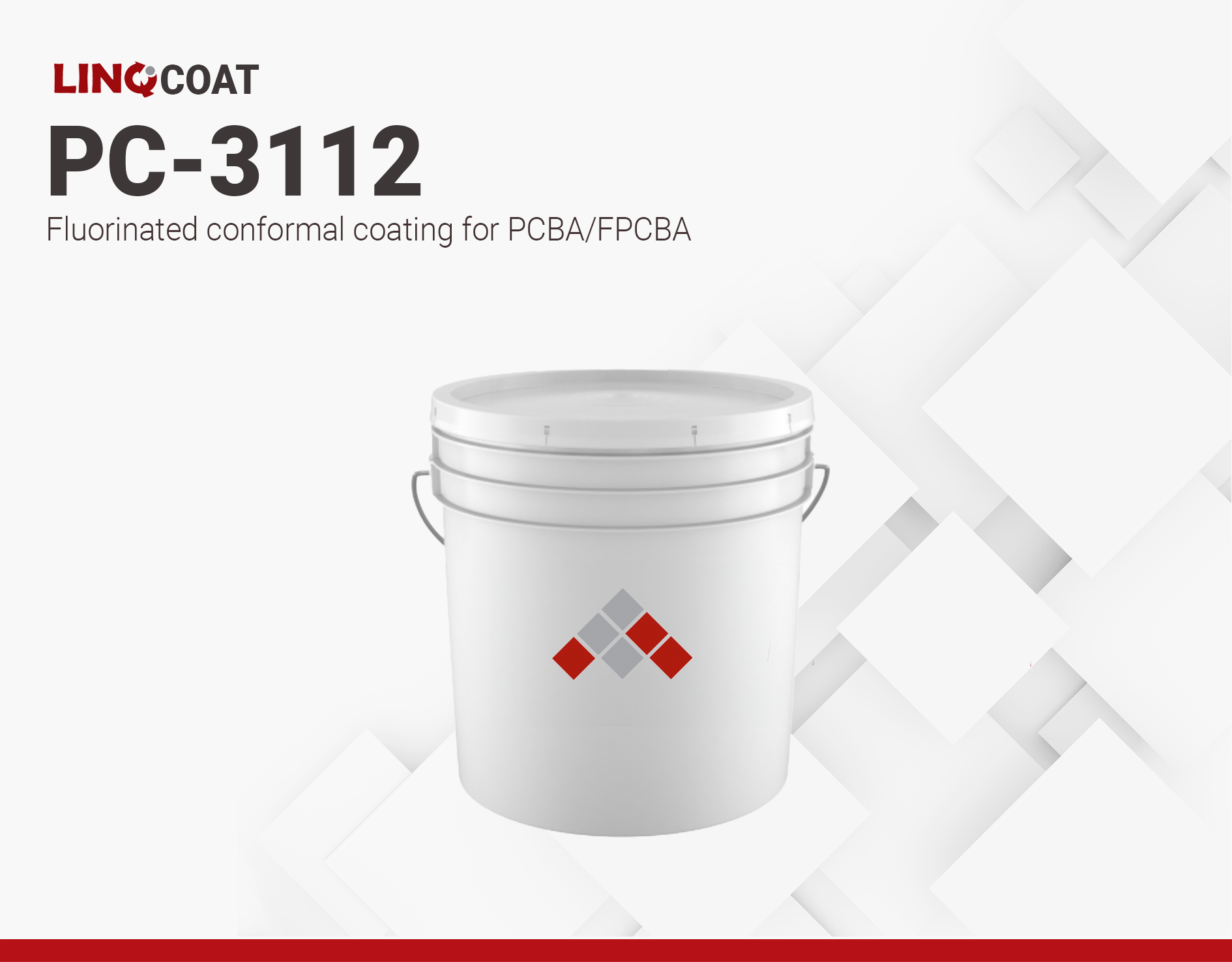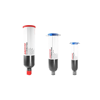LINQCOAT PC-3112 | Fluorinated conformal coating
- Electronic component protection
- Quick dry time (3-5s)
- 0.1-1 micron coating thickness
Product Description
LINQCOAT PC-3112 is a non-toxic, transparent fluoropolymer conformal coating engineered to create an ultra-thin film layer ranging from 0.1 to 1 micron in thickness. Its rapid drying capability at ambient temperature, typically within 3 to 5 seconds, significantly enhances operational productivity. PC-3112 is compatible with various substrates such as metal, plastic, and glass, making the coating extremely versatile in its application.
LINQCOAT PC-3112 is used as a protective coating for electronic components including PCBs, protecting from moisture (IPX6), corrosion, and corrosive gases. It is a high-performance conformal coating, that provides increased protection, efficiency, and longevity of electronic components.
Technical Specifications
| General Properties | |||||
| Appearance Appearance Appearance at room temperature. | Transparent | ||||
| Vapor Density | 8.6 | ||||
| |||||
| Physical Properties | |||||
| Viscosity Viscosity Viscosity is a measurement of a fluid’s resistance to flow. Viscosity is commonly measured in centiPoise (cP). One cP is defined as the viscosity of water and all other viscosities are derived from this base. MPa is another common unit with a 1:1 conversion to cP. A product like honey would have a much higher viscosity -around 10,000 cPs- compared to water. As a result, honey would flow much slower out of a tipped glass than water would. The viscosity of a material can be decreased with an increase in temperature in order to better suit an application | 0.6 mPa.s | ||||
| Thermal Properties | |||||
| Boiling Point Boiling Point The amount of degree’s needed to reach in order to make the substance boil. | 61 °C | ||||
| Glass Transition Temperature (Tg) Glass Transition Temperature (Tg) The glass transition temperature for organic adhesives is a temperature region where the polymers change from glassy and brittle to soft and rubbery. Increasing the temperature further continues the softening process as the viscosity drops too. Temperatures between the glass transition temperature and below the decomposition point of the adhesive are the best region for bonding. The glass-transition temperature Tg of a material characterizes the range of temperatures over which this glass transition occurs. | 44 °C | ||||
| Other Properties | |||||
| RoHS Compliant RoHS Compliant RoHS is a product level compliance based on a European Union Directive which restricts the Use of certain Hazardous Substances in Electrical and Electronic Equipment (RoHS). Products compliant with this directive do not exceed the allowable amounts of the following restricted materials: lead, mercury, cadmium, hexavalent chromium, polybrominated biphenyls (PBB) and polybrominated diphenyl ethers (PBDE), with some limited exemptions | Yes | ||||
| Water Contact Angle | 120 ° | ||||
Additional Information
Can this product reach UL94-V0?
UL 94 is a certification that we submit to only when required and for projects with high potential. The test itself though is very simple. PC-3112 as a per fluorinated fluid is naturally flame-retardant due to the strong carbon-fluorine bond so it should not be a problem. The coating thickness is very thin though at 3~5um so achieving V-O is mostly dependent on the PCB board; but our team thinks it would pass.






